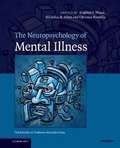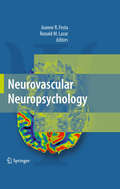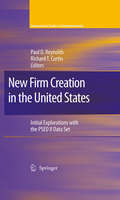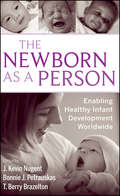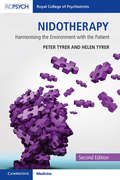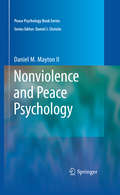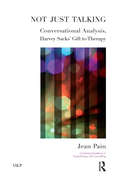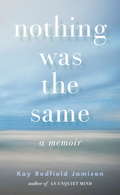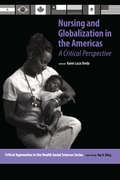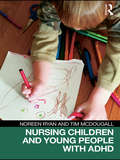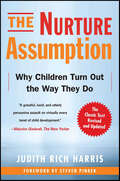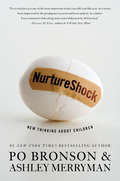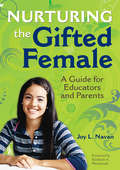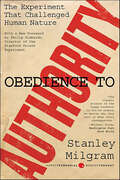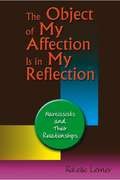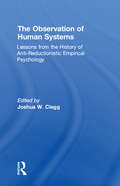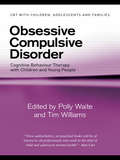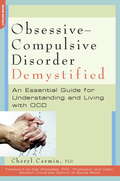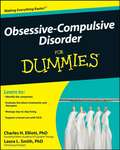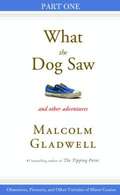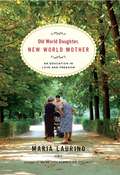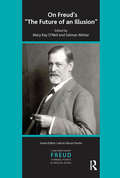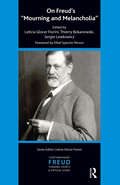- Table View
- List View
The Neuropsychology of Mental Illness
by Stephen J. Wood Nicholas B. Allen Christos PantelisIt is widely accepted that most psychiatric disorders are associated with cognitive impairment and that neuropsychological approaches can help unravel the mechanisms underlying brain function and help us develop a better understanding of these disorders. In this book, a panel of the world's leading experts describe the development of neuropsychological approaches to the investigation, description, measurement and management of a wide range of mental illnesses. Part One explains the rationale for examining neuropsychological processes within clinical disorders, leading into Part Two summarizing and critiquing the methodological approaches to study. Part Three covers each of the major psychiatric disorders and provides a summary of the neuropsychological findings for each condition. The final section brings together the perspectives of neuroscientists, psychiatrists and philosophers. Essential reading for all those studying the healthy as well as the disordered brain, The Neuropsychology of Mental Illness will appeal to specialists from the fields of mental health, psychology, clinical neuroscience and philosophy.
The Neuroscience of Religious Experience
by Patrick McnamaraRecent technical advances in the life and medical sciences have revolutionized our understanding of the brain, while the emerging disciplines of social, cognitive, and affective neuroscience continue to reveal the connections of the higher cognitive functions and emotional states associated with religious experience to underlying brain states. At the same time, a host of developing theories in psychology and anthropology posit evolutionary explanations for the ubiquity and persistence of religious beliefs and the reports of religious experiences across human cultures, while gesturing toward physical bases for these behaviors. What is missing from this literature is a strong voice speaking to these behavioral and social scientists - as well as to the intellectually curious in the religious studies community - from the perspective of a brain scientist.
Neurovascular Neuropsychology
by Joanne Festa Ronald Lazar J. P. MohrNeurovascular diseases and conditions, and their associated risk factors, represent a significant cause of cognitive disability in the United States and throughout the world. In the USA alone there are 750,000 new strokes each year, representing the number one cause of disability in the country. Hypertension, found in approximately 50 million Americans, has been shown to be associated with alterations of cognitive function, even in the absence of stroke and dementia. Recent studies of neurovascular disease have now revealed that neuropsychological function may be a more sensitive measure of brain integrity than coordination, motor or sensory function and correlates will with functional outcome measures. Neurovascular Neuropsychology focuses on focal and diffuse neurovascular disease in addition to systemic conditions in which cognition and behavior have been uniquely associated with different pathologic states. With an increasing number of patients being treated by healthcare professionals, Neurovascular Neuropsychology will prove to be a strong reference to consult in regards to neuropsychological syndromes.
New Firm Creation in the United States
by Richard T. Curtin Paul D. ReynoldsThis volume includes contributions from the organizers and advisory board members of the Panel Study of Entrepreneurial Dynamics (PSED) II project, designed to enhance the scientific understanding of how people start businesses. Covering such topics as entrepreneurial behavior, demographic and gender factors, financing the emerging business, ownership arrangements, and the roles of social capital and technology, the information obtained includes data on the nature of those active as nascent entrepreneurs, the activities undertaken during the start-up process, and the characteristics of start-up efforts that become new firms. Including an appendix explaining the data collection procedures, the result is an introduction to the theories, conceptualizations, approaches, and measurement of the business creation process, and a guide for those planning more detailed analysis.
The Newborn as a Person
by Brazelton T. Berry Petrauskas Bonnie Nugent J. KevinAdvances in the fields of psychology and psychiatry have bolstered the perspective that infants are not the passive recipients of sensory stimulation as it was once thought. Built on T. Berry Brazelton s paradigm-shifting work on the individuality of infants, this book provides relevant information on the necessity for family-centered intervention in the newborn period. Coverage is wide-ranging, authoritative, and practical. This landmark collection includes contributions from T. Berry Brazelton, Tiffany Field, Rachel Keen, and many others. Pediatric professionals will receive practical guidance to support families, immediately beginning in the newborn period.
Nidotherapy: Harmonising the Environment with the Patient
by Peter Tyrer Helen TyrerWe all think about the environment when treating mental illness, but we regard it as secondary to helping symptoms and behaviour. Nidotherapy is the collaborative and systematic process of changing the physical, social and personal environment for people who have failed to respond fully to conventional treatments. It can be given by therapists unqualified in other specific treatment interventions and is highly cost effective, and so offers great advantages in health services constrained by cost pressures. This new edition has been fully revised, and includes new chapters on the principles of nidotherapy, the evidence for its effectiveness, its use in intellectual disability and those of limited mental capacity, the skills needed for nidotherapy, the economic benefits and common misconceptions. This comprehensive guide shows how nidotherapy can be used across the range of mental disorders and gives evidence for its value.
Nonviolence and Peace Psychology
by Daniel MaytonRecent trends and events worldwide have increased public interest in nonviolence, pacifism, and peace psychology as well as professional interest across the social sciences. Nonviolence and Peace Psychology assembles multiple perspectives to create a more comprehensive and nuanced understanding of the concepts and phenomena of nonviolence than is usually seen on the subject. Through this diverse literature--spanning psychology, political science, religious studies, anthropology, and sociology--peace psychologist Dan Mayton gives readers the opportunity to view nonviolence as a body of principles, a system of pragmatics, and a strategy for social change. This important volume: Draws critical distinctions between nonviolence, pacifism, and related concepts. Classifies nonviolence in terms of its scope (intrapersonal, interpersonal, societal, global) and pacifism according to political and situational dimensions. Applies standard psychological concepts such as beliefs, motives, dispositions, and values to define nonviolent actions and behaviors. Brings sociohistorical and cross-cultural context to peace psychology. Analyzes a century's worth of nonviolent social action, from the pathbreaking work of Gandhi and King to the Courage to Refuse movement within the Israeli armed forces. Reviews methodological and measurement issues in nonviolence research, and suggests areas for future study. Although more attention is traditionally devoted to violence and aggression within the social sciences, Nonviolence and Peace Psychology reveals a robust knowledge base and a framework for peacebuilding work, granting peace psychologists, activists, and mediators new possibilities for the transformative power of nonviolence.
Not Just Talking: Conversational Analysis, Harvey Sacks' Gift to Therapy (United Kingdom Council For Psychotherapy Ser.)
by Jean PainGood relationships depend, above all, on our skills in conversation. Harvey Sacks' method, Conversational Analysis, was the springboard for The author's research into psychotherapy as a social activity that depends for its success on the quality of the therapeutic dialogue. The author wrote this book not only for therapists, but for all those who do not understand what psychotherapy is for and are curious to know how it works. The author offers us new tools for all kinds of conversation to work for, rather than against, us.
Nothing Was the Same: A Memoir
by Kay Redfield JamisonFrom the internationally acclaimed author of An Unquiet Mind, comes a haunting meditation on mortality, grief, and loss. Perhaps no one but Kay Jamison - who combines the acute perceptions of a psychologist with writerly elegance and passion - could bring such a delicate touch to the subject of losing a spouse to cancer. In spare and at times strikingly lyrical prose, Jamison looks back at her relationship with her husband, Richard Wyatt, a renowned scientist who battled severe dyslexia to become one of the foremost experts on schizophrenia. And with characteristic honesty, she describes his slow surrender to cancer, her own struggle with overpowering grief, and her efforts to distinguish grief from depression. But she also recalls the joy that Richard brought her during the nearly twenty years they had together. Wryly humorous anecdotes mingle with bittersweet memories of a relationship that was passionate and loving - if troubled on occasion by her manic depression - as Jamison reveals the ways in which Richard taught her to live fully through his courage and grace. A penetrating study of grief viewed from deep inside the experience itself, Nothing Was the Same is also a deeply moving memoir by a superb writer.
Nursing and Globalization in the Americas: A Critical Perspective (Critical Approaches in the Health Social Sciences Series)
by Karen Lucas Breda Ray H EllingNursing is vital to millions of people worldwide. This book details the ebb and flow of its fascinating history and politics through case studies from Brazil, Argentina, Chile, Colombia, Mexico, Canada, and the United States. Authors from across the Americas share findings and explore new thinking about Western hemisphere-specific issues that affect nursing and health care. Using economic globalization as an overarching framework, these cross-national case studies show the strengths and contradictions in nursing, elucidating common themes and examining successes. The partnership of authors shapes a collective understanding of nursing in the Americas and forms a basis for enduring hemisphere-wide academic exchange. Thus, the book offers a new platform for understanding the struggles and obstacles of nursing in a climate of globalization, as well as for understanding nursing's richness and accomplishments. Because politics, economics, health, and nursing are inextricably linked, this volume critically explores the intersections among political economies and nursing and health care systems. The historical and contextual background allows readers to make sense of how and why nursing in the Americas has taken on its present form.
Nursing Children and Young People with ADHD
by Noreen Ryan Tim McDougallADHD is one of the most commonly diagnosed behavioural disorders in children and young people. It is a complex and contested condition, with potential causes and treatments in biological, psychological and social domains. This is the first comprehensive text for nurses and other health professionals in this field. Nursing Children and Young People with ADHD explores the evidence, incorporating and expanding on the new NICE guidelines for practice in this area, to provide an essential knowledge base for practice. The text covers: causes, diagnosis, co-morbidity, user and carer perspectives, assessment, treatment and interventions (including those suitable for use in schools), prescribing and the legal background. An invaluable text for pre-registration student nurses on mental health and children branches, this will also be a useful reference work for post-registration nurses and health professionals seeking evidence-based recommendations for practice.
The Nurture Assumption: Why Children Turn Out the Way They Do
by Judith Rich HarrisA NEW YORK TIMES NOTABLE BOOKHow much credit do parents deserve when their children turn out welt? How much blame when they turn out badly? Judith Rich Harris has a message that will change parents' lives: The "nurture assumption" -- the belief that what makes children turn out the way they do, aside from their genes, is the way their parents bring them up -- is nothing more than a cultural myth. This electrifying book explodes some of our unquestioned beliefs about children and parents and gives us a radically new view of childhood.Harris looks with a fresh eye at the real lives of real children to show that it is what they experience outside the home, in the company of their peers, that matters most, Parents don't socialize children; children socialize children. With eloquence and humor, Judith Harris explains why parents have little power to determine the sort of people their children will become.The Nurture Assumption is an important and entertaining work that brings together insights from psychology, sociology, anthropology, primatology, and evolutionary biology to offer a startling new view of who we are and how we got that way.
NurtureShock: New Thinking About Children
by Po Bronson Ashley MerrymanIn a world of modern, involved, caring parents, why are so many kids aggressive and cruel? Where is intelligence hidden in the brain, and why does that matter? Why do cross-racial friendships decrease in schools that are more integrated? If 98% of kids think lying is morally wrong, then why do 98% of kids lie? What's the single most important thing that helps infants learn language? NurtureShock is a groundbreaking collaboration between award-winning science journalists Po Bronson and Ashley Merryman. They argue that when it comes to children, we've mistaken good intentions for good ideas. With impeccable storytelling and razor-sharp analysis, they demonstrate that many of modern society's strategies for nurturing children are in fact backfiring--because key twists in the science have been overlooked. Nothing like a parenting manual, the authors' work is an insightful exploration of themes and issues that transcend children's (and adults') lives.
Nurturing the Gifted Female: A Guide for Educators and Parents
by Joy NavanStrengthen gifted girls' potential by exploring characteristics of girls' giftedness; factors affecting development; issues of resilience, self-efficacy, and personal ethics; and the importance of supportive adults.
Nutritional Strategies for the Very Low Birthweight Infant
by David H. AdamkinThe goal of nutritional management in VLBW and ELBW infants is the achievement of postnatal growth at a rate that approximates the intrauterine growth of a normal fetus at the same postconceptional age. In reality, however, growth lags considerably after birth; although non-nutritional factors are involved, nutrient deficiencies are critical in explaining delayed growth. This practical clinically-oriented pocketbook reviews and summarises all available clinical evidence. It enables the reader to implement parenteral or enteral feeding plans, with the goals of reducing postnatal weight loss, earlier return to birthweight, and improved catch-up growth. Both nutrient balance and growth and the impact on neurodevelopment and health outcomes are evaluated. With many tables and algorithms to summarise key data and management strategies, Nutritional Strategies for the Very Low Birthweight Infant is an invaluable guide for all healthcare professionals caring for premature babies.
Obedience to Authority: The Experiment That Challenged Human Nature
by Stanley MilgramA part of Harper Perennial’s special “Resistance Library” highlighting classic works that illuminate our times: A special edition reissue of Stanley Milgram’s landmark examination of humanity’s susceptibility to authoritarianism.“The classic account of the human tendency to follow orders, no matter who they hurt or what their consequences.” — Washington Post Book WorldIn the 1960s, Yale University psychologist Stanley Milgram famously carried out a series of experiments that forever changed our perceptions of morality and free will. The subjects—or “teachers”—were instructed to administer electroshocks to a human “learner,” with the shocks becoming progressively more powerful and painful. Controversial but now strongly vindicated by the scientific community, these experiments attempted to determine to what extent people will obey orders from authority figures regardless of consequences. “Milgram’s experiments on obedience have made us more aware of the dangers of uncritically accepting authority,” wrote Peter Singer in the New York Times Book Review. With an introduction from Dr. Philip Zimbardo, who conducted the famous Stanford Prison Experiment, Obedience to Authority is Milgram’s fascinating and troubling chronicle of his classic study and a vivid and persuasive explanation of his conclusions.
The Object of My Affection is in My Reflection: Coping with Narcissists
by Rokelle LernerNarcissists suffer from a personality disorder that began in the early stages of childhood. They are stuck in an early development stage where there is tremendous self-interest, excessive self-absorption, and extreme entitlement. Their behavior is a consequence of early childhood abandonment and abuse. ''The Object of My Affection Is in My Reflection'' will help you understand the complexities of this disorder and arm you with the coping mechanisms to navigate through this type of relationship.
The Observation of Human Systems: Lessons from the History of Anti-reductionistic Empirical Psychology
by Joshua W. Clegg"Contemporary mainstream psychology has moved toward methodological specificity bounded by instrumental experimentalism. However, this institutional reduction of sanctioned methods has not been fully embraced by all social scientists, nor even by all experimental psychologists. The social sciences are rife with examples of practicing empirical scientists disaffected with the reductionism and atomism of traditional experimentalism.The empirical theory and practice of four of these disaffected social scientists--Lev Vygotsky, James Baldwin, James Gibson, and Kurt Lewin--is explored in this volume. Each of the scientists considered here argued for a rigorously empirical method while still maintaining a clear anti-reductionist stance. They justified their disaffection with the dominant psychological paradigms of their respective eras in terms of a fidelity to their phenomena of study, a fidelity they believed would be compromised by radical reductionism and ontological atomism.The authors in this collection explore the theory and practice of these eminent researchers and from it find inspiration for contemporary social science. The primary argument running through these analyses is that the social sciences should take seriously the notion of holistic empirical investigation. This means, among other things, re-establishing the indissoluble ties between theory, method and procedure and resisting the manualization of research procedures. It also means developing theories of relations and not simply of elemental properties. Such theories would concern particular units, fields, or systems of relations and not be reduced to, or interpreted in the terms of, other systems. Finally, a holistic social science requires integration of the active agent into theory, method, and procedure, an integration that points toward both participatory and emancipatory methods."
Obsessive Compulsive Disorder: Cognitive Behaviour Therapy with Children and Young People (CBT with Children, Adolescents and Families)
by Polly Waite Tim WilliamsObsessive Compulsive Disorder (OCD) is characterised by a person's obsessive, distressing, intrusive thoughts and their related compulsions. It affects an estimated one percent of teenagers and has been detected in children as young as three years old. In this concise, accessible book experienced contributors provide detailed guidance on carrying out assessments and treatment for children and young people with OCD from a cognitive behavioural perspective. This approach has been developed from extensive research and clinical work with young people with OCD and associated problems. The book includes: an overview of OCD an introduction to CBT and its relevance to OCD in young people assessment and treatment methods case studies and clinical vignettes worksheets for use with the client. This straightforward text provides essential direction for practitioners and trainees in a range of professions including psychiatry, psychotherapy, counselling, nursing, education and social work. Online resources: The appendices of this book provide worksheets that can be downloaded free of charge to purchasers of the print version. Please visit the website to find out more about this facility.
Obsessive-Compulsive Disorder Demystified: An Essential Guide for Understanding and Living with OCD
by Cheryl CarminAn invaluable guide for anyone with OCD, by a leading expert and with insight from a patient-advocate?an important addition to the popular Demystified series
Obsessive-Compulsive Disorder For Dummies
by Laura L. Smith Charles H. ElliottArguably one of the most complex emotional disorders, Obsessive Compulsive Disorder is surprisingly common. Furthermore, most people at some time in their lives exhibit a smattering of OCD-like symptoms.Obsessive Compulsive Disorder For Dummies sorts out the otherwise curious and confusing world of obsessive compulsive disorder. Engaging and comprehensive, it explains the causes of OCD and describes the rainbow of OCD symptoms. The book shows readers whether OCD symptoms represent normal and trivial concerns (for example, a neat freak) or something that should be checked out by a mental health professional (for example, needing to wash hands so often that they become raw and red). In easy to understand steps, the authors lay out the latest treatments that have been proven to work for this disorder, and provide practical and real tools for living well long-term. Whether you or someone you care about has this disorder, Obsessive Compulsive Disorder For Dummies gives you an empathic understanding of this fascinating yet treatable mental disorder.
Obsessives, Pioneers, and Other Varieties of Minor Genius: Part One from What the Dog Saw
by Malcolm GladwellWhat is the difference between choking and panicking? Why are there dozens of varieties of mustard-but only one variety of ketchup? What do football players teach us about how to hire teachers? What does hair dye tell us about the history of the 20 th century? In the past decade, Malcolm Gladwell has written three books that have radically changed how we understand our world and ourselves:The Tipping Point;Blink; andOutliers.Now, inWhat the Dog Saw, he brings together, for the first time, the best of his writing fromTheNew Yorkerover the same period. Here is the bittersweet tale of the inventor of the birth control pill, and the dazzling inventions of the pasta sauce pioneer Howard Moscowitz. Gladwell sits with Ron Popeil, the king of the American kitchen, as he sells rotisserie ovens, and divines the secrets of Cesar Millan, the "dog whisperer" who can calm savage animals with the touch of his hand. He explores intelligence tests and ethnic profiling and "hindsight bias" and why it was that everyone in Silicon Valley once tripped over themselves to hire the same college graduate. "Good writing," Gladwell says in his preface, "does not succeed or fail on the strength of its ability to persuade. It succeeds or fails on the strength of its ability to engage you, to make you think, to give you a glimpse into someone else's head."What the Dog Sawis yet another example of the buoyant spirit and unflagging curiosity that have made Malcolm Gladwell our most brilliant investigator of the hidden extraordinary.
Old World Daughter, New World Mother: An Education in Love and Freedom
by Maria LaurinoIn an attempt to discuss feminism through the prism of ethnic identity, the author of "Were You Always an Italian?" brews an unusual and affirming blend of contemporary and traditional values, in this warm, smart, and witty personal investigation of ethnicity and womanhood.
On Freud's The Future of an Illusion
by O’Neil Mary Kay Salman Akthar"The Future of an Illusion" reveals Freud's reflections about religion as well as his hope that in the future science will go beyond religion, and reason will replace faith in God. The discussion with an imaginary critic revealed his internal debate, mirroring the debate about this subject in the outside world. However, it also enlightens his way of thinking: deconstructing and constructing at the same time. This volume considers Freudian ideas and their implications today, while focusing on the contradictions and gaps in Freud's proposals. The question of the coexistence between religion and psychoanalysis, as well as the place of ideals, belief, illusion, and imagination - and, no less important, the benevolent and destructive aspects of religion - also come into play.
On Freud's Mourning and Melancholia (Ipa Contemporary Freud)
by Thierry BokanowskiBoth melancholia and mourning are triggered by the same thing, that is, by loss. The distinction often made is that mourning occurs after the death of a loved one while in melancholia the object of love does not qualify as irretrievably lost.
